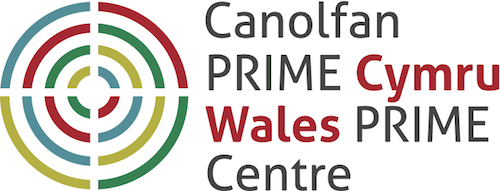Title
Do national reporting and learning system medication incidents in palliative care reflect patient and carer concerns about medication management and safety?
Contact details
Dr Sarah Yardley - sarah.yardley@ucl.ac.uk
Dr Andrew Carson-Stevens - carson-stevensap@cardiff.ac.uk
Principal / Lead investigator
Sarah Yardley BM PGCertClinEd MA PhD FRCP MAcadMEd
Consultant in Palliative Medicine, Central & North West London NHS Foundation Trust
Honorary Clinical Senior Lecturer, Marie Curie Palliative Care Research Department, University College London
Co-investigators / research team
- Julia Abernethy, Patient Safety Team, NHS England and NHS Improvement, London, UK
- Lucy Bemand-Qureshi, Barking, Havering & Redbridge University Hospitals NHS Trust
- Ben Bowers, University of Cambridge
- Amy Brown, Cardiff University
- Andrew Carson-Stevens, Division of Population Medicine, Cardiff University
- Antony Chuter, Patient and Public Involvement Collaborator, Hayward Heaths, UK
- Sally-Anne Francis, Marie Curie Palliative Care Research Department, University College London
- Stuart Hellard, Division of Population Medicine, Cardiff University
- Matthew Willis, Cardiff University
Type of study
Mixed-methods design combining systematic review searching techniques with cross-sectional quantitative descriptive analysis and interpretative qualitative metasynthesis to integrate:
- Scoping review
- Medication incidents
then comparison of 1 and 2 contextualising with stakeholder perspectives.
Prospective ethical approval granted: Cardiff University School of Medicine Research Ethics Committee (Ref 19/28).
Summary
We know that people only have high quality healthcare experiences if they feel safe. This relies on their concerns being heard, and decisions about their care being made with them. It is more than just being technically safe, but even that is not always achieved. The National Reporting and Learning System (NRLS) is a system for people working in the National Health Service (NHS) to report safety incidents. Medication safety incidents account for more than 10% of NRLS reports.
In Supportive, Palliative and End-of- Life Care, medicines are commonly used to help with symptoms such as pain, nausea, vomiting, chest secretions and restlessness. Patient and carers views on good medicines safety in palliative care have not been compared with what people working in healthcare report to the NRLS.
In this study we are going to compare patient and carer views (taken from published research) with a sample of NRLS incidents. This will help us to better understand what is meaningful to patients in palliative care and what is needed to ensure medication and patient safety works.
We will look for gaps that can be addressed by targeting support for learning and change. The way we are doing this study (methods) has not been done before and so we will also contribute to new ways for doing safety and healthcare improvement research.
Strengths and limitations of this study:
- There is a moral imperative to learn from data about potentially unsafe healthcare, as advocated by WHO.
- This study addresses patient and carer concerns about medication management and safety in palliative care, which is complex, poorly defined and under-researched.
- This is an innovative mixed-method study combining systematic review searching techniques with cross-sectional quantitative descriptive analysis and interpretative qualitative meta-syntheses.
- When data are drawn from existing published literature and from a national incident reporting database thereby focusing on what people choose to say or report, it remains possible that some specific elements may be under-represented or over-represented.
- The addition of an ‘expert by experience’ voice into the study design is helping to ensure the research remains focused on patient needs and experiences.
How could this research potentially benefit patients?
- Evidence for meaningful patient safety initiatives in palliative medication management.
- For the first time, bring together multivoiced constructions of patient safety in palliative care.
- identify changing or escalating patterns in palliative medication incidents due to the COVID-19 pandemic.
- Identify the implications for professional learning and actions.
- New knowledge of how patients and professionals construct ideas of what constitutes (un)safe care from this study will underpin targeted quality improvement projects and prioritisation of further research.
- Generation of the dataset using methods originating from best practice for systematic reviews is a novel methodological approach. This will be transferable and contribute to the evidence base for safety work in palliative care and other clinical areas.
Public / patient involvement
Our PPI representatives attended study meetings, assisted in data collection and will input the review of the final report.
Funder
Central & North West London NHS Foundation Trust: Research Starter Grant
Total grant value
£ 10,000
Start date
September 2019
End date
October 2022
Outputs generated (Reports / Publications / Impact)
Brown A, Wills M, Francis S, et al. 41 Patient safety consequences of medication incidents in palliative care: mixed method analysis of incident reports. BMJ Supportive & Palliative Care 2022;12:A17.
Yardley S, Francis S, Chuter A, et al Mixed-methods study protocol: do national reporting and learning system medication incidents in palliative care reflect patient and carer concerns about medication management and safety? BMJ Open 2021;11:e048696. doi: 10.1136/bmjopen-2021-048696
Impact
Pathway to impact:
- Peer-reviewed publications, academic presentations, plain English summaries, press releases and social media will be used to disseminate to the public, researchers, clinicians and policy-makers.
- PPI group events will be held. People with experience of palliative care either as patients or carers will be invited to attend and discuss the emerging study findings to help focus the work on issues and priorities most important to them and others like them.
- Attendees will be invited to co-produce conference submissions and academic publications, with flexible approaches to involvement in order to support inclusivity.
Further information
Study presentation:

